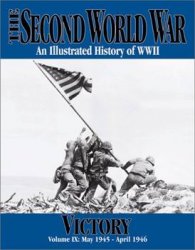In the spring of 1948 President Truman’s fortunes were at low ebb. Public opinion polls suggested that a majority of the people considered him incompetent or worse. The Republicans seemed so sure to win the 1948 presidential election that many prominent
Democrats began to talk of denying Truman the nomination. Two of FDR’s sons came out for General Eisenhower as the Democratic candidate. Governor Dewey, who again won the Republican nomination, ran confidently (even complacently), certain that he would carry the country.
Truman’s position seemed hopeless because he had alienated both southern conservatives and northern liberals. The Southerners were particularly distressed because in 1946 the president had established a Committee on Civil Rights, which had recommended antilynching and antipoll tax legislation and the creation of a permanent Fair Employment Practices Commission. When the Democratic convention adopted a civil rights plank, the southern delegates walked out. Southern conservatives then founded the States’ Rights (“Dixiecrat”) party and nominated J. Strom Thurmond of South Carolina for president.
As for the liberals, in 1947 a group that believed Truman’s containment policy a threat to world peace

In 1948 the strongly Republican Chicago Daily Tribune printed its postelection headlines before all the returns were in. For Truman, it was the perfect climax to his hard-won victory.
Organized a new Progressive party and nominated former Vice President Henry A. Wallace. With two minor candidates sure to cut into the Democratic vote, the president’s chances seemed minuscule.
Promising to “give ’em hell,” Truman launched an aggressive whistle-stop campaign. Traveling by rail, he made several hundred informal but hard-hitting speeches. He excoriated the “do-nothing” Republican Congress, which had rejected his program and passed the Taft-Hartley Act, and he warned labor, farmers, and consumers that if Dewey won, Republican “gluttons of privilege” would do away with all the gains of the New Deal years.
Millions were moved by Truman’s arguments and by his courageous fight against great odds. The success of the Berlin airlift during the presidential campaign helped him considerably, as did disaffection among normally Republican midwestern farmers. The Progressive party fell increasingly into the hands of communist sympathizers, driving away many liberals who might otherwise have supported Wallace.
Dewey’s smug, lackluster speeches failed to attract independents. One party satirized his campaign by boiling it down to four platitudes: “Agriculture is important.” “Our rivers are full of fish.” “You cannot have freedom without liberty.” “The future lies ahead.” The president reinvigorated the New Deal coalition and won an amazing upset victory on election day. He collected 24.1 million votes to Dewey’s 21.9 million, the two minor candidates being held to about 2.3 million. In the Electoral College his margin was a thumping 303 to 189.
Truman’s victory encouraged him to press forward with what he called his Fair Deal program. He urged Congress to raise the minimum wage, fund an ambitious public housing program, develop a national health insurance system, and repeal the Taft-Hartley Act. However, relatively little of Truman’s Fair Deal was enacted into law. Congress approved a federal housing program and measures increasing the minimum wage and Social Security benefits, but these were merely extensions of New Deal legislation.




 World History
World History









